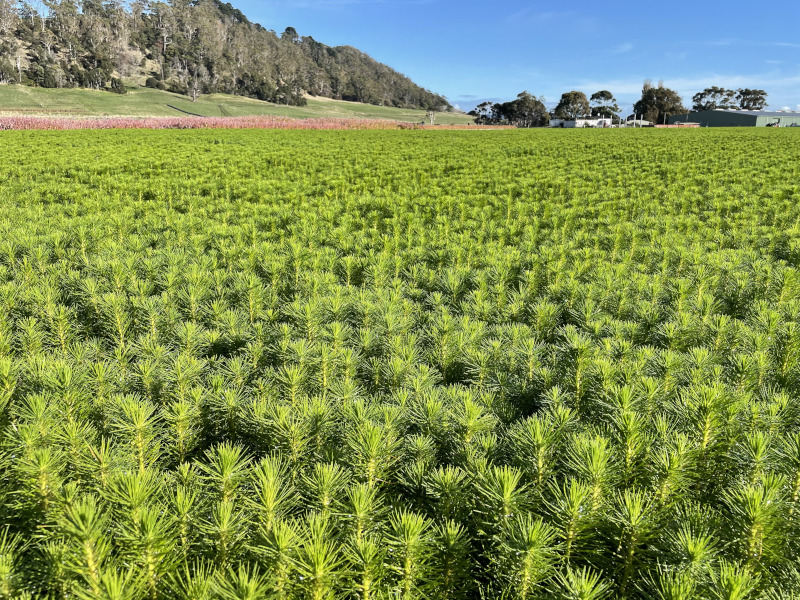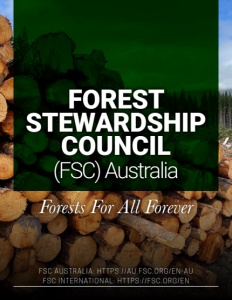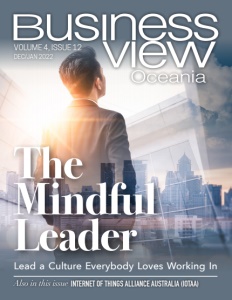Forest Stewardship Council (FSC) Australia
Forests For All Forever
Business View Oceania interviews Damian Paull, CEO of Forest Stewardship Council Australia, for our Clean and Green focus.
Forest Stewardship Council (FSC) Australia has been setting the standards for sustainably managed forests in the country since 2001. The organisation is proudly part of the FSC global network, which was formed as a response to the unsatisfactory results of the 1992 United Nations Earth Summit, and they have worked tirelessly for the last two decades to bring about positive changes to forest management in Australia. FSC Australia fills their responsibilities by developing best practice standards for forest managers and businesses associated with the forestry industry, and defines their mission as: “To promote the environmentally appropriate, socially beneficial, and economically viable management of the world’s forests.”
CEO of FSC Australia, Damien Paull is incredibly proud of what the association has achieved to date, and gladly offers his unique insight into the organisation’s core values, key priorities, member benefits, and plans for the future. “We help forests remain thriving environments for the generations to come and assist consumers in making ethical and responsible choices when they buy forest products. I think one of the unique things about FSC as an organisation is the way that it strives to bring people together through the care of our land and the many lives it supports.”
FSC Australia provides independent certification to forests and forest managers, processors, manufacturers, and other forestry-related businesses that ensures all products come from a sustainable source. This certification, highlighted by the FSC logo on products, advertisement, equipment, and product packaging, helps to preserve forests’ natural habitat, maintain biodiversity, and protect the ecosystems both within and attached to forests of all kinds. Certification is connected to two standards: FSC Forest Management, and Chain of Custody. Standards are supported by a framework that ensures they are transparent, independent and free of bias, accessible, and participatory for all people of Australia.

Damian Paull, CEO of FSC
In order to reach the FSC Forest Management Standard, which is informed by the FSC International Center and set by FSC Australia, forest managers and associated businesses must meet extensive criteria. FSC’s 10 Principles and Criteria are listed as: Compliance with Laws; Workers Rights and Employment Conditions; Indigenous Peoples’ Rights; Community Relations; Benefits from the Forest; Environmental Values and Impacts; Management Planning; Monitoring and Assessment; High Conservation Values; and, Implementation of Management Activities. Mr. Paull shares, “Our system runs international standards that are tailored locally. There are other indicators that need to be met in our standards, but that tailoring must still remain within a certain boundary, which is approved centrally with very careful consideration, deliberation, and planning. We began to develop the national standard in 2013, finished it in 2018, and implemented it in 2019. So, we are currently in a space of post-implementation where we are taking a look at our purpose beyond the creation of those standards, focussing on expanding our reach, and improving our brand.”
Alongside the Forest Management Standard certification, FSC Australia recognises members through the Chain of Custody certification and Provisional License. The Chain of Custody certification, Mr. Paull says, is an international standard that tracks forest products from harvest through to end use, regulating providers and giving consumers peace of mind that their purchase comes from a sustainable source. Provisional Licenses are given to large retail businesses that would like to promote the FSC brand and use their logo for advertisement purposes. Examples of FSC Australia Provisional License holders include Coles, Woolworths, Officeworks, and Bunnings.
FSC Australia’s members are divided into three chambers that reflect the interests and capabilities of the members themselves: economic, social, and environmental. The association supports 57 individual company members through resource provision, education, and brand recognition, as well as providing them with the opportunity to be part of the world-renowned FSC International network. FSC International identifies 10 reasons to join on their website, the first of which details their positive impact on forests, people, and wildlife. FSC is the only forest certification system in the world that requires consultation with local Indigenous Peoples. They also provide the highest level of protection for rare and endangered forests and wildlife of any existing forest certification scheme. The remaining reasons to join FSC International are listed as: We’re governed by our members; we have the highest standards; we’re respected and credible; our impact is far-reaching; we have influential support; we’re transparent; our standards are globally consistent; we think local; and, we’re recognised.
FSC Australia has two major educational projects currently in operation in Australia; the Knowledge Tree series, and FSC Fridays. Mr. Paull elaborates, “The Knowledge Tree series has recently been re-released with great success. Essentially, it is a series of training packages and opportunities that cover a wide range of issues we regularly see in the industry. We have three core course areas geared towards Forest Management certificate holders, Chain of Custody certificate holders, and Promotional License holders. We see it as a fantastic training opportunity, and we’ve got quite a few potential course developments planned.” FSC Friday is a global campaign promoted by FSC International that encourages members and certificate holders to carry out events that support the growth of the organisation alongside their own business and raise environmental awareness in their local community.

Looking to the future, FSC Australia plans to continue fostering relationships with key providers across the country, strengthen their foothold in other areas around the Oceania region, and to continue in the development and promotion of the organisation’s newest venture- Ecosystem Services. Mr. Paull provides an explanation of their plan for its implementation. “Our Ecosystem Services isn’t a formal standard or certification, but it is a recognition. We have recently seen a real shift in the industry that looks at the inherent value of forests in a broader way, not just as being useful for production and resources, but through things like biodiversity, soil and water quality, cultural heritage, and carbon within the forest. Ecosystem Services is about encouraging awareness surrounding these values, and helping providers develop an economically viable argument for an increased focus on climate change.”
Finally, FSC Australia would like to mention their Indigenous Working Group. The group aims to deepen understanding of the role that responsible forestry can play in supporting Indigenous communities, and help those communities establish and run forestry businesses in their own right. Initiatives such as the Indigenous Working Group are one of the many ways FSC Australia supports their local market, local land, and the local people living within it. The association will continue to proudly support their members, the Australian market, and the global environment in the future as part of the world’s sustainability story.
AT A GLANCE
Forest Stewardship Council Australia
What: Organisation setting the standards for sustainably managed forests across Australia.
Where: FSC Australia is headquartered in Melbourne, Australia
Website; FSC Australia: https://au.fsc.org/en-au
Website; FSC International: https://fsc.org/en




 This information will never be shared to third parties
This information will never be shared to third parties